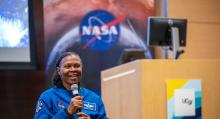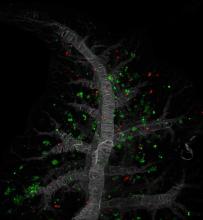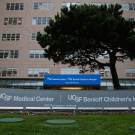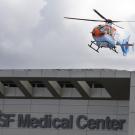News
Childhood Cancer Expert Champions Innovative Treatment at New Hospital
It offers whimsical works of art by celebrated artists, interactive exhibits designed by the Exploratorium and acres of rooftop gardens. When UCSF Benioff Children’s Hospital San Francisco moves to its new home at Mission Bay, it will even feature a fleet of robots that glide silently across
Environmental Carcinogens Leave Distinctive Genetic Imprints in Tumors
Genetically engineering tumors in mice, a technique that has dominated cancer research for decades, may not replicate important features of cancers caused by exposure to environmental carcinogens, according to a new study led by UC San Francisco scientists. In addition to pointing the way to better
Radiation Exposure Linked To Aggressive Thyroid Cancers
For the first time, researchers have found that exposure to radioactive iodine is associated with more aggressive forms of thyroid cancer, according to a careful study of nearly 12,000 people in Belarus who were exposed when they were children or adolescents to fallout from the 1986 Chernobyl
UCSF Medical Center Again Named Best Hospital in San Francisco
UCSF Medical Center has been named the 2014-15 Consumer Choice Award winner for San Francisco by National Research Corporation, which identifies hospitals across the United States that health care consumers choose as having the highest quality provided by the best clinicians. Consumers rated UCSF
Genetic Variant Protects Some Latina Women from Breast Cancer
An international research collaboration led by UC San Francisco researchers has identified a genetic variant common in Latina women that protects against breast cancer. The variant, a difference in just one of the three billion “letters” in the human genome known as a single-nucleotide polymorphism
Staff Prepare for Debut of New Mission Bay Hospitals
The best day of her life quickly flipped over to become the worst. “Brenda” had just given birth to her son. She had allowed her ex, the baby’s father, to visit, but when her back was turned, he hightailed it out of the postpartum room with the newborn in his arms. Within seconds, code pink was
Human Cancer Prognosis Is Related to Newly Identified Immune Cell
A newly discovered population of immune cells in tumors is associated with less severe cancer outcomes in humans, and may have therapeutic potential, according to a new UC San Francisco study of 3,600 human tumors of 12 types, as well as mouse experiments. The research is published online October 16








